
The Untamed Beauty of Mount Elgon National Park
Mount Elgon National Park in Uganda is a hidden gem for nature lovers and adventurous travelers. The park, named after the extinct volcano Mount Elgon, offers an array of breathtaking landscapes, from lush forests to towering cliffs and cascading waterfalls. The mountain itself is one of the oldest in East Africa, with its highest peak, Wagagai, standing at 4,321 meters above sea level. This makes it a perfect destination for those seeking both tranquility and a bit of a challenge. The park is home to a rich variety of wildlife, including elephants, buffaloes, and several species of birds. Bird watchers will be thrilled by the sight of the endangered Lammergeier and other unique avian species. For those interested in flora, the park's diverse vegetation zones range from montane forests to bamboo and moorland, each offering its own unique beauty. One of the park's most unique features is its extensive cave network, formed by ancient lava flows. The most famous of these is the Kitum Cave, which penetrates 200 meters into the mountainside. These caves are not only geological wonders but also serve as salt licks for elephants, who come here to supplement their diet with the cave's mineral-rich deposits. Whether you're trekking up to the summit, exploring the caves, or simply soaking in the natural beauty, Mount Elgon National Park promises an unforgettable experience.
Local tips in Mount Elgon National Park
- Wear sturdy hiking boots for the challenging terrain.
- Carry enough water and snacks, as facilities are limited.
- Hire a local guide for the best experience and safety.
- Bring binoculars for bird watching and wildlife spotting.
- Visit during the dry season (June to August and December to March) for the best trekking conditions.
The Untamed Beauty of Mount Elgon National Park
Mount Elgon National Park in Uganda is a hidden gem for nature lovers and adventurous travelers. The park, named after the extinct volcano Mount Elgon, offers an array of breathtaking landscapes, from lush forests to towering cliffs and cascading waterfalls. The mountain itself is one of the oldest in East Africa, with its highest peak, Wagagai, standing at 4,321 meters above sea level. This makes it a perfect destination for those seeking both tranquility and a bit of a challenge. The park is home to a rich variety of wildlife, including elephants, buffaloes, and several species of birds. Bird watchers will be thrilled by the sight of the endangered Lammergeier and other unique avian species. For those interested in flora, the park's diverse vegetation zones range from montane forests to bamboo and moorland, each offering its own unique beauty. One of the park's most unique features is its extensive cave network, formed by ancient lava flows. The most famous of these is the Kitum Cave, which penetrates 200 meters into the mountainside. These caves are not only geological wonders but also serve as salt licks for elephants, who come here to supplement their diet with the cave's mineral-rich deposits. Whether you're trekking up to the summit, exploring the caves, or simply soaking in the natural beauty, Mount Elgon National Park promises an unforgettable experience.
When is the best time to go to Mount Elgon National Park?
Iconic landmarks you can’t miss
Mount Elgon
Explore the stunning landscapes of Mount Elgon, a dormant volcano in Uganda, renowned for its diverse wildlife and breathtaking hiking trails.
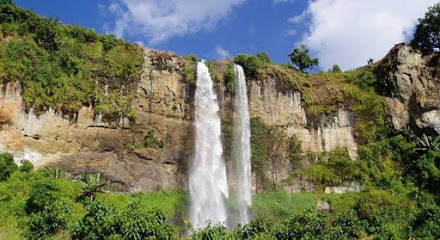
Mount Elgon Hikes Uganda
Explore the breathtaking landscapes of Mount Elgon, a hiker's paradise in Uganda with stunning views and rich biodiversity.
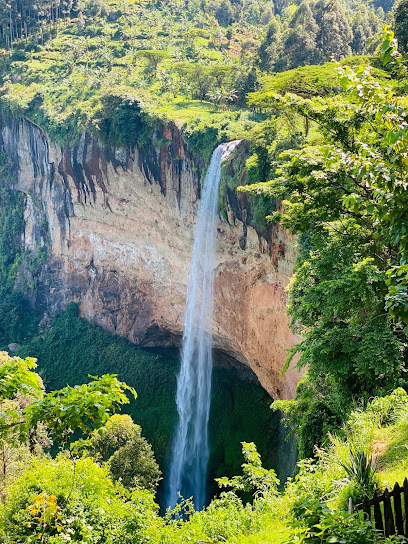
Mt Elgon Voyage
Explore the breathtaking trails of Mt Elgon Voyage, where adventure meets stunning natural beauty and rich cultural experiences in Uganda.
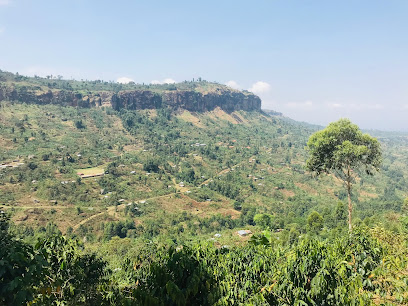
Mount Elgon National Park, Budadiri Office
Explore the breathtaking landscapes and rich biodiversity of Mount Elgon National Park, a top destination for nature lovers and adventure seekers in Uganda.
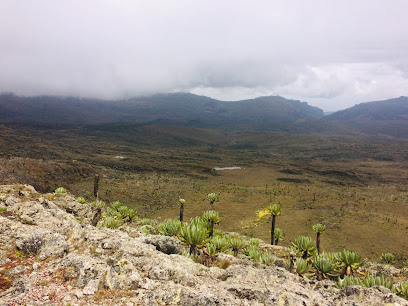
Mount Elgon Forest Reserve
Experience the lush landscapes and rich biodiversity of Mount Elgon Forest Reserve, a natural paradise in Uganda that invites adventure and tranquility.

Mount Elgon Hot Spring
Experience the natural beauty and tranquility of Mount Elgon Hot Spring, a perfect retreat for hikers and relaxation seekers in Uganda.
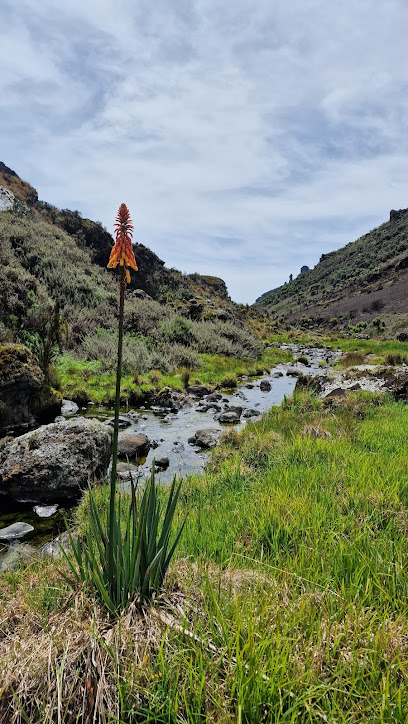
Unmissable attractions to see
Sisiyi Falls
Experience the breathtaking beauty of Sisiyi Falls in Buligenyi, a serene escape into nature's wonderland waiting to be explored.
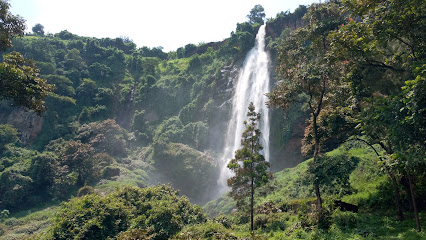
Wanale Ridge
Explore the breathtaking landscapes and hidden waterfalls of Wanale Ridge, a must-visit natural wonder in Uganda for all adventure seekers.
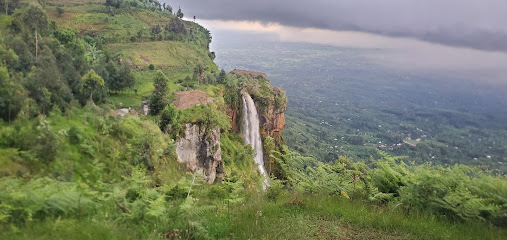
Mount Elgon Hikes Uganda
Experience the breathtaking beauty of Mount Elgon Hikes in Uganda, where adventure meets culture amidst stunning landscapes and majestic waterfalls.
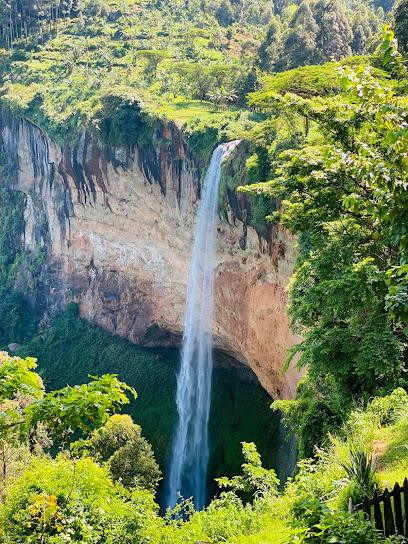
Mt Elgon Voyage
Experience the breathtaking beauty and adventure of Mt Elgon Voyage, a premier hiking destination in Uganda's stunning landscapes.
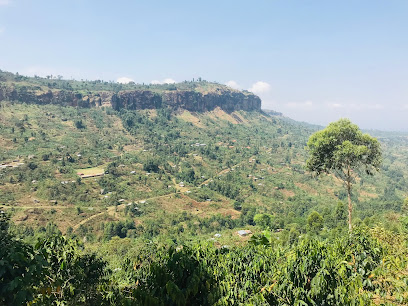
Sipi Falls Waterfall
Explore the breathtaking Sipi Falls, a stunning natural wonder in Uganda, where adventure meets tranquility amidst lush landscapes and cascading waterfalls.
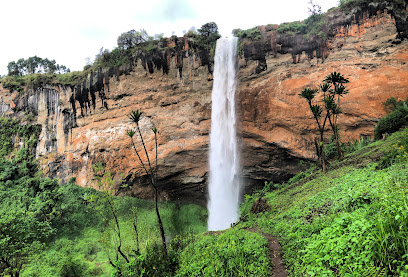
Kapkwai Exploration Center Mt Elgon National Park
Explore the breathtaking landscapes and rich biodiversity at Kapkwai Exploration Center, your gateway to adventure in Mt Elgon National Park.
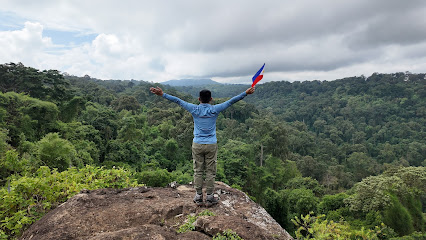
Sipifalls Mt elgon
Experience the breathtaking beauty and adventure of Sipi Falls in Uganda, a hidden gem perfect for hiking and cultural exploration.
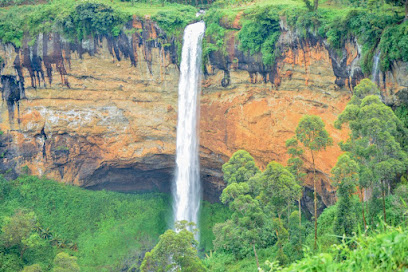
Sipi Magical Tours
Experience breathtaking landscapes and rich cultural heritage at Sipi Magical Tours, a must-visit destination in Uganda for nature lovers and adventurers.
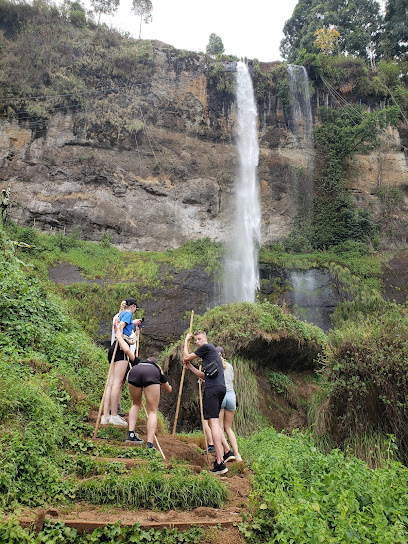
Pioneer Grounds
Explore Pioneer Grounds in Mbale - a serene tourist attraction surrounded by nature, perfect for relaxation, picnics, and local experiences.
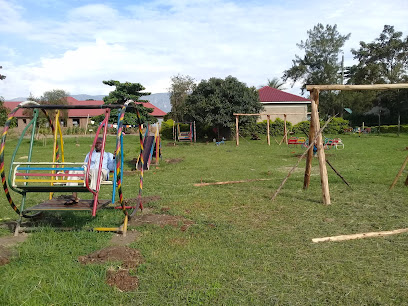
Kyakondo Falls
Discover the breathtaking beauty of Kyakondo Falls in Mbale, Uganda, where nature's wonders meet serene adventure in a captivating setting.
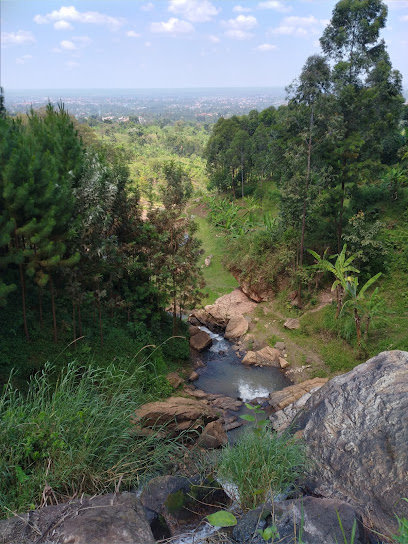
Mount Elgon National Park, Budadiri Office
Explore the breathtaking landscapes and rich biodiversity of Mount Elgon National Park, a UNESCO Biosphere Reserve in Uganda, perfect for adventure seekers.
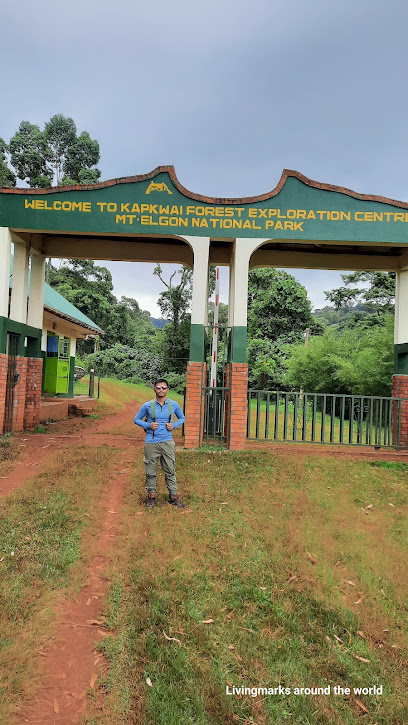
Mudde cave camp
Experience the breathtaking beauty of Mudde Cave Camp, a premier hiking destination in Uganda where adventure meets tranquility in nature's embrace.

Sunset Viewpoint
Discover the enchanting beauty of Sunset Viewpoint, where every sunset paints a new masterpiece over the Ugandan landscape.
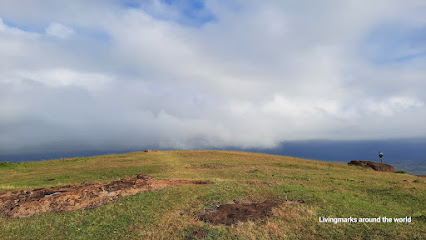
Sipi-Elgon Activities
Experience the beauty of Sipi Falls, Uganda - a hiking haven with stunning waterfalls and rich cultural heritage. Adventure awaits in nature's paradise.
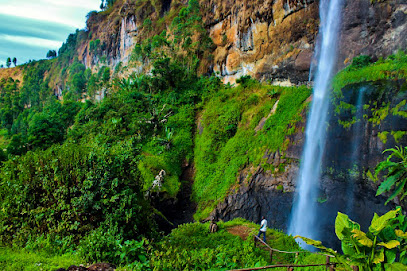
Buginyanya-Lusha Gorge
Experience the stunning landscapes and tranquil beauty of Buginyanya-Lusha Gorge, a must-visit natural attraction in Uganda.
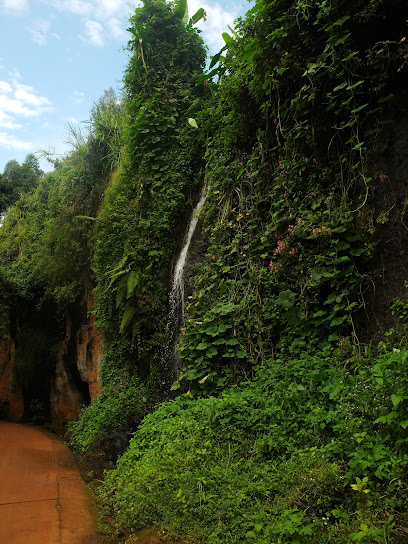
Essential places to dine
Mt Elgon Hotel
Experience comfort amidst nature at Mt Elgon Hotel – your gateway to adventure in Mbale's breathtaking landscapes.

Endiro Coffee
Discover the essence of Ugandan coffee culture at Endiro Coffee in Mbale – where every cup tells a story.
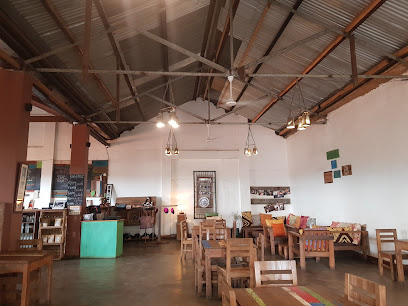
Thatch Lounge
Discover Thatch Lounge in Mbale - where delicious local cuisine meets an inviting atmosphere for unforgettable dining experiences.
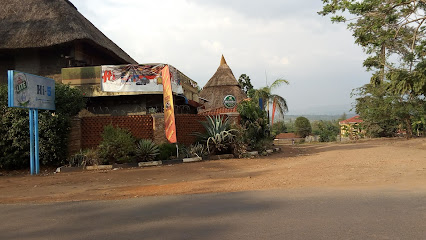
Cafe Shires
Discover the flavors of Uganda at Cafe Shires in Tororo - where local cuisine meets cozy ambiance.
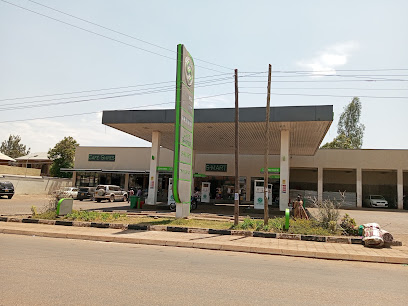
Club el Tanjia
Discover the lively spirit of Mbale at Club el Tanjia - where great food meets unforgettable entertainment!
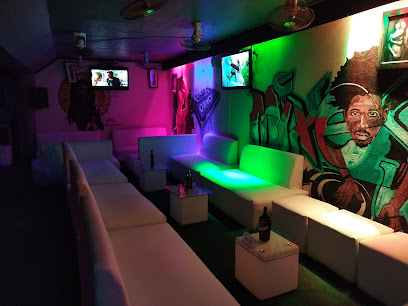
Colobus Restaurant
Experience the rich flavors of Uganda at Colobus Restaurant in Mbale – where local ingredients meet international cuisine.
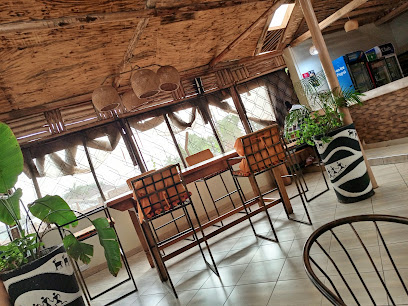
Cosmo Coffee Shop & Restaurant
Experience authentic African cuisine at Cosmo Coffee Shop & Restaurant in Mbale, where local flavors meet warm hospitality.
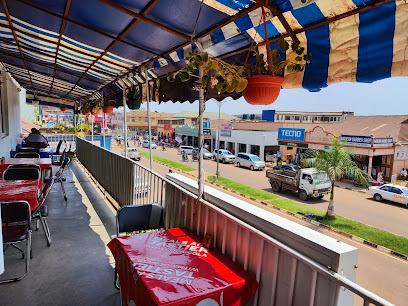
Queen's Palace Restaurant Malaba
Experience the authentic taste of Uganda at Queen's Palace Restaurant Malaba, where local flavors meet international cuisine in a warm atmosphere.
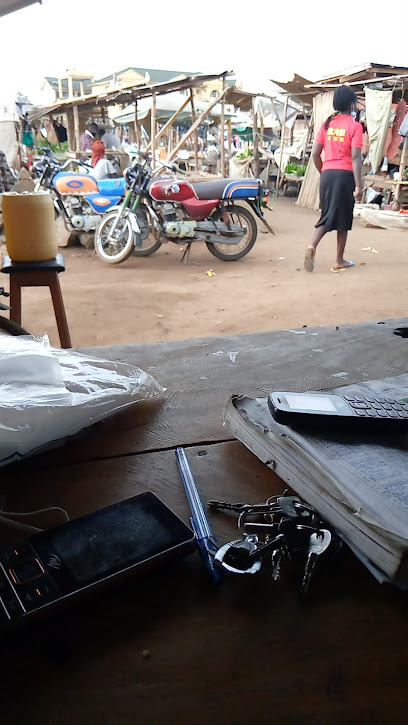
Cosy Point
Experience the heart of Ugandan cuisine at Cosy Point in Mbale – where every meal tells a story!
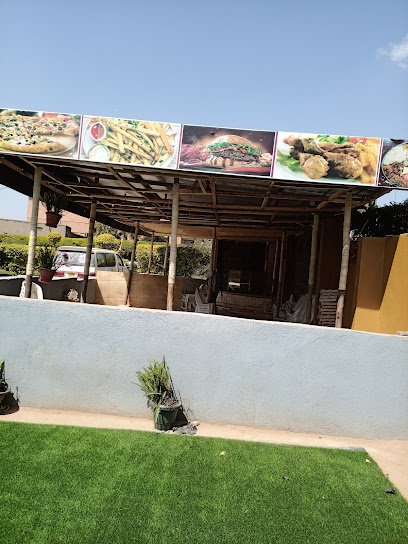
Eco Shamba Café
Discover Eco Shamba Café in Mbale: where delicious food meets sustainable practices for an unforgettable dining experience.
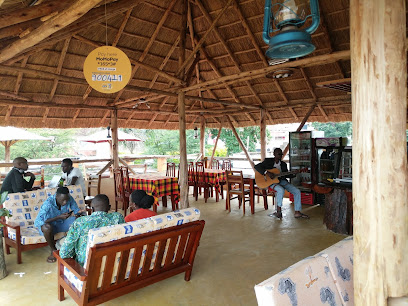
Horizontal Gardens Mbale
Experience delightful Ugandan cuisine amidst serene gardens at Horizontal Gardens Mbale – a must-visit for food lovers.
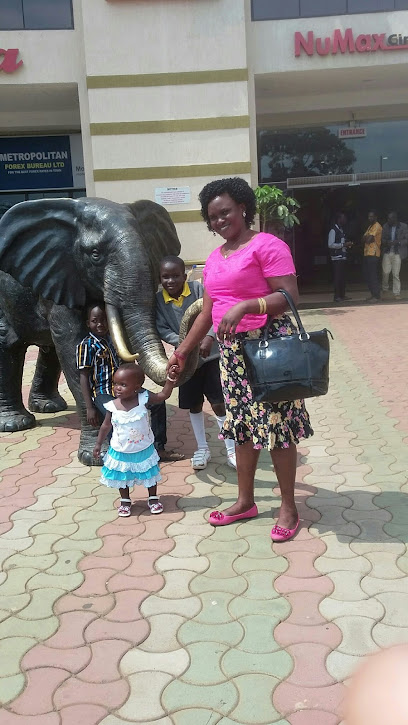
Fish Café and Lounge
Discover culinary delight at Fish Café and Lounge in Mbale - where fresh seafood meets vibrant local culture.
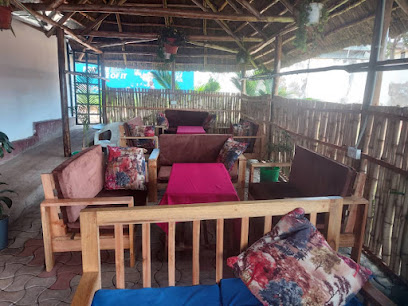
Nalongos Restaurant
Experience authentic Ugandan cuisine at Nalongos Restaurant in Mbale - where local flavors meet warm hospitality.

LE-STAR RESTAURANT AND BAR
Discover authentic Ugandan flavors at LE-STAR Restaurant and Bar in Mbale – where culinary excellence meets vibrant ambiance.
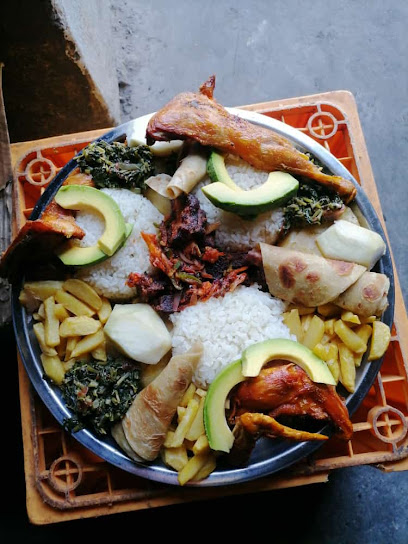
Mt.Elgon Backpackers
Experience authentic Ugandan cuisine at Mt. Elgon Backpackers while enjoying stunning views and adventure-filled surroundings in Mbale.
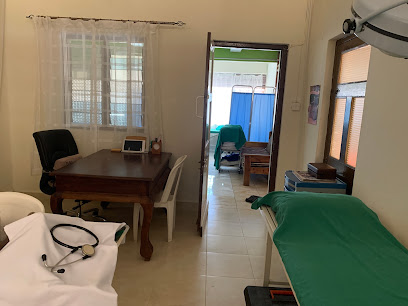
Markets, malls and hidden boutiques
Mount Elgon National Park
Explore the breathtaking landscapes and diverse wildlife of Mount Elgon National Park, a hidden gem for nature lovers in Uganda.
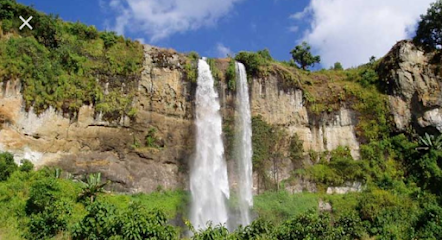
WODADA ADRY BUTANDIGA
Explore WODADA ADRY BUTANDIGA for unique Ugandan home goods that capture the essence of local culture and craftsmanship, perfect for souvenirs.

Benson's Workshop
Explore the local flavors and essentials at Benson's Workshop, a charming convenience store in Kapchorwa, Uganda, perfect for tourists.
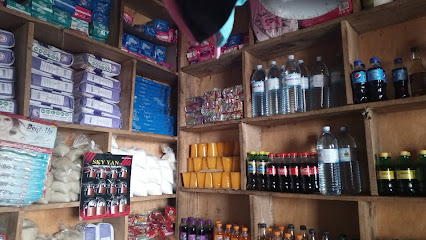
WABUSIMBA FAMILY
Discover the spirit of Ugandan craftsmanship at Wabusimba Family, your go-to destination for unique home goods and authentic souvenirs.
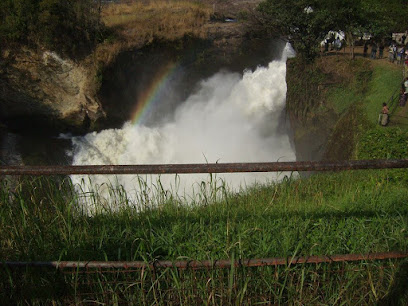
Randa Trading Center
Explore Randa Trading Center in Bunakomola - a vibrant hub for trading card enthusiasts and a glimpse into local Ugandan culture.
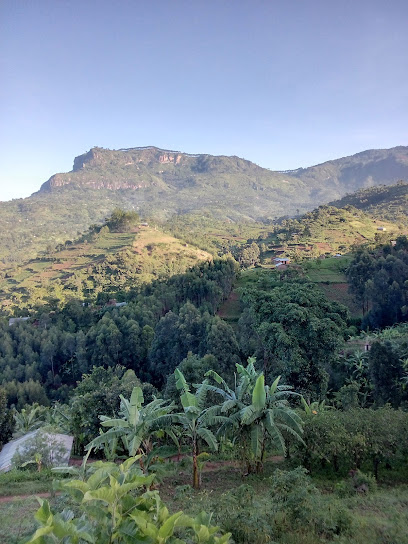
Store (Coffee stores)
Discover the rich flavors of Budadiri at this charming coffee store, a perfect pit stop for coffee enthusiasts and cultural explorers.

Legends Empire
Explore unique Ugandan fashion at Legends Empire, a vibrant clothing store in Kapchorwa offering stylish attire for every taste.
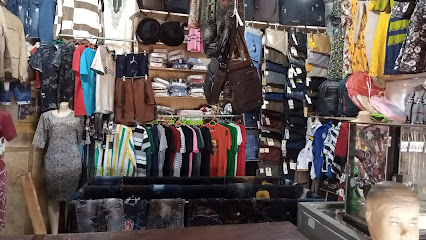
Elgon Stationers
Explore Elgon Stationers in Kapchorwa for unique stationery finds and a vibrant shopping experience that inspires creativity and connection.
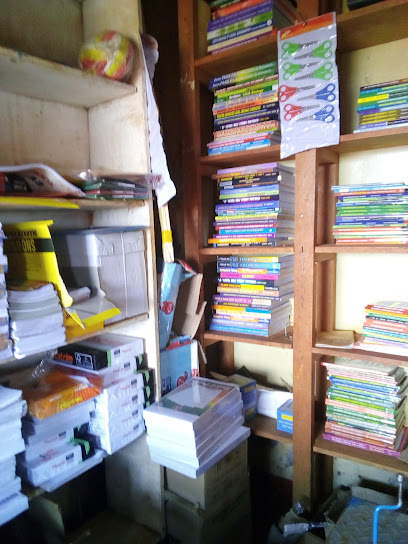
Late Wonambwa ginatio
Explore Late Wonambwa Gination in Budadiri, Uganda, for a unique collection of women's clothing blending local craftsmanship and modern fashion.

MAGUNGU TRADING CENTRE
Experience the heart of Bugitimwa at Magungu Trading Centre, a vibrant shopping mall offering local goods, delicious food, and cultural exchanges.

Rula Center
Discover the charm of Rula Center in Butandiga, a general store showcasing local goods and culture, perfect for tourists seeking authentic experiences.

OLESULEL CHILDREN'S HUB
Discover a charming boutique in Kapchorwa, OLESULEL CHILDREN'S HUB, offering unique children's products that delight families and celebrate local culture.
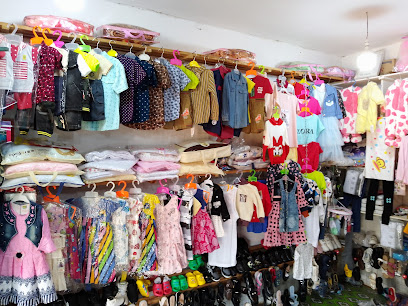
Colins Shop
Explore the charm of Colin's Shop in Kapchorwa, Uganda, and discover authentic local crafts and unique souvenirs that reflect the vibrant culture.

Lexinz
Explore the unique blend of local craftsmanship and contemporary fashion at Lexinz Boutique in Kapchorwa, Uganda.
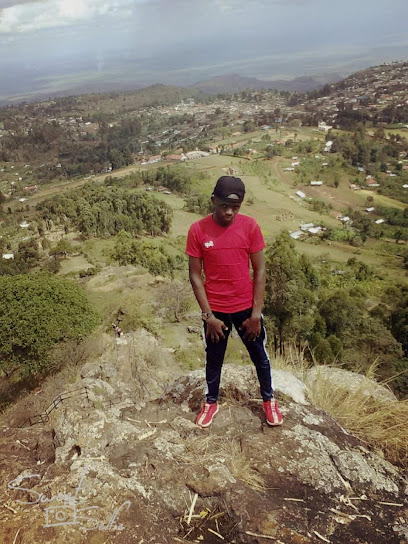
Homestead of Tomin Nelson Pheady
Explore unique home goods and local crafts at the Homestead of Tomin Nelson Pheady in Kapchorwa, a destination rich in Ugandan culture and artistry.

Essential bars & hidden hideouts
The Oak Bar & Restaurant Mbale
Experience the lively atmosphere and diverse menu at The Oak Bar & Restaurant in Mbale, where locals and tourists come together.
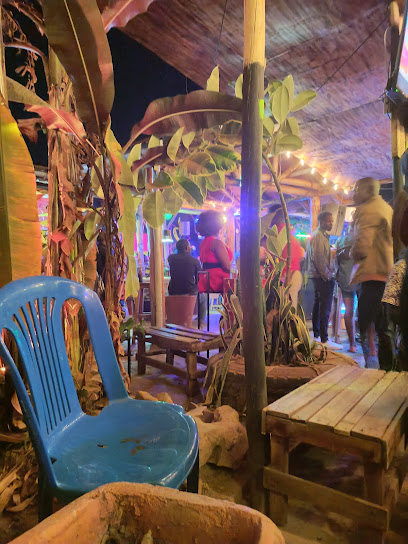
Top Deck Bar & Restaurant
Experience the vibrant flavors and stunning views of Mbale at Top Deck Bar & Restaurant, the perfect destination for food and drink lovers.
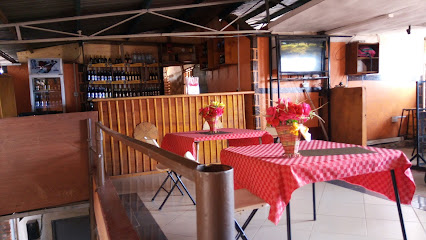
The Place Lovers Pub
Discover the charm of The Place Lovers Pub in Nakaloke, where locals gather to enjoy drinks, good food, and vibrant cultural experiences.
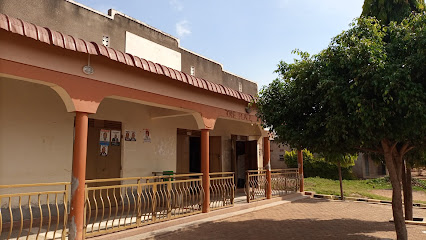
Pals pub
Discover Pals Pub in Kapchorwa for a delightful blend of local flavors, friendly service, and a vibrant atmosphere amidst Uganda's stunning landscapes.
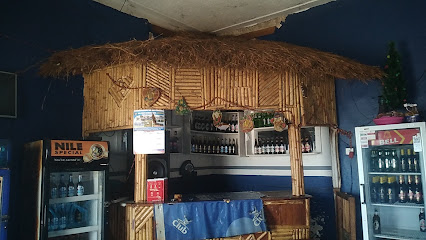
The Ranch
Experience the vibrant nightlife at The Ranch in Mbale, Kampala – where local culture meets refreshing drinks and friendly vibes.
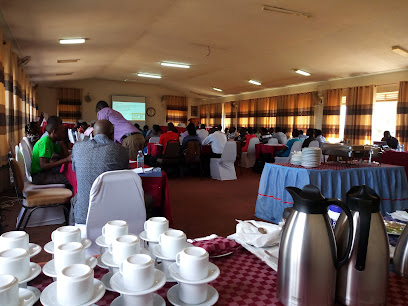
De place Bar and Restaurant
Experience the vibrant nightlife at De Place Bar and Restaurant in Kapchorwa, where delicious food and live entertainment await.
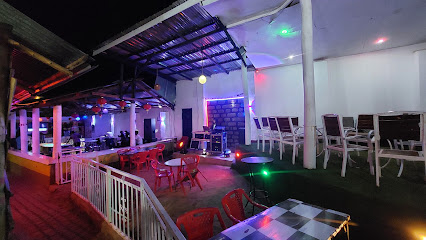
Freedom club
Experience the vibrant nightlife at Freedom Club in Nkoma, where great drinks, live music, and a welcoming atmosphere await you.
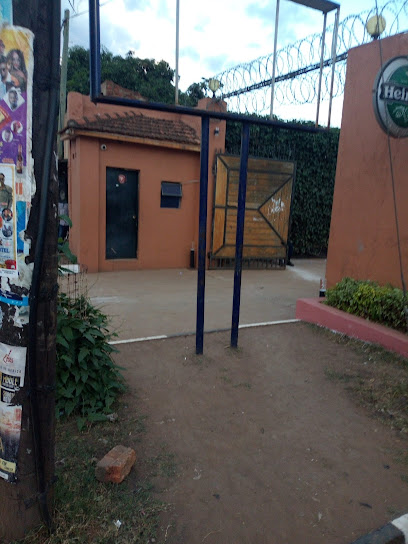
LONDON Pub & ACCOMMODATION
Discover the vibrant atmosphere and local flavors at LONDON Pub & ACCOMMODATION in Bulucheke, a perfect blend of comfort and culture.
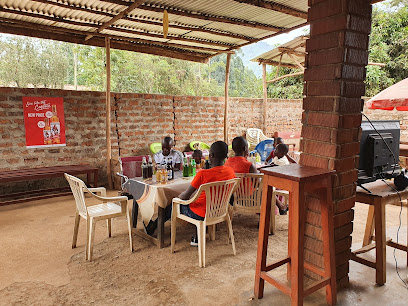
River side bar and Lodge
Experience serene riverside views and warm hospitality at the River Side Bar and Lodge in Bukwo, a perfect retreat for relaxation and fun.

Tan depot
Discover the vibrant atmosphere at Tan Depot, a local bar in Bukwo, Uganda, where culture and camaraderie come together for an unforgettable experience.

Peter's bar
Experience the lively ambiance and local flavors at Peter's Bar, a popular gathering spot at Nabongo Muyembe junction in Uganda.

Hi5 Bar And Louge (Former Thatch)
Discover the essence of Kampala nightlife at Hi5 Bar And Lounge, where great drinks and vibrant atmosphere await.

Big boys yard
Experience the vibrant nightlife at Big Boys Yard in Nkoma, where local culture meets a lively bar atmosphere.

Makutano bar
Discover the lively ambiance of Makutano Bar in Bukwo, where local culture and nightlife converge in a delightful experience.
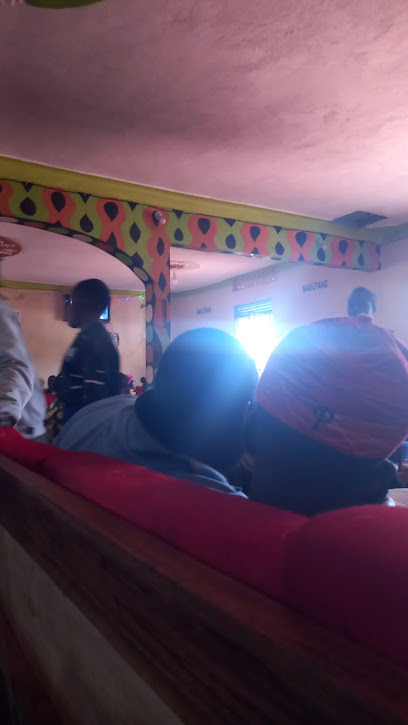
Local Phrases about Mount Elgon National Park
-
- HelloMulembe
[moo-lehm-beh] - GoodbyeKwaheri
[kwah-heh-ree] - YesWee
[weh] - NoNay
[nay] - Please/You're welcomeTafadhali
[ta-fah-dah-lee] - Thank youAsante
[ah-sahn-teh] - Excuse me/SorrySamahani
[sah-mah-hah-nee] - How are you?Oli otya?
[oh-lee oh-tyah] - Fine. And you?Jangu. Ne wano?
[jan-goo neh wah-noh] - Do you speak English?Olulimi lw'olungereza olinze?
[oh-loo-lee-mee loo-oh-loon-geh-reh-zah oh-leen-zeh] - I don't understandSisobola kuzimba
[see-soh-boh-lah koo-zim-bah]
- HelloMulembe
-
- I'd like to see the menu, pleaseNjagala okulabirira emenyi, kubanga
[nja-gah-lah oh-koo-lah-bee-ree-rah eh-men-yee koo-bahn-gah] - I don't eat meatSisobola kulya enfudu
[see-soh-boh-lah koo-lyah en-foo-doo] - Cheers!Tukole
[too-koh-leh] - I would like to pay, pleaseNjagala okusindika, kubanga
[nja-gah-lah oh-koo-sin-dee-kah koo-bahn-gah]
- I'd like to see the menu, pleaseNjagala okulabirira emenyi, kubanga
-
- Help!Tusaidie!
[too-sah-ee-dee-eh] - Go away!Tandikira!
[tahn-dee-kee-rah] - Call the Police!Okukuba poliisi!
[oh-koo-koo-bah poh-lee-ee-see] - Call a doctor!Okukuba daktari!
[oh-koo-koo-bah dahk-tah-ree] - I'm lostNnali mubi
[nah-lee moo-bee] - I'm illNjagala okutya
[nja-gah-lah oh-koo-tyah]
- Help!Tusaidie!
-
- I'd like to buy...Njagala okutunda...
[nja-gah-lah oh-koo-too-ndah] - I'm just lookingNjagala okulya eyo
[nja-gah-lah oh-koo-lyah eh-yoh] - How much is it?Omanyi kiki?
[oh-mahn-yee kee-kee] - That's too expensiveEkitongole kino kikusasula
[eh-kee-tohn-goh-leh kee-noh kee-koo-sah-soo-lah] - Can you lower the price?Wolaba okusasula?
[woh-lah-bah oh-koo-sah-soo-lah]
- I'd like to buy...Njagala okutunda...
-
- What time is it?Ssaawa ng'ani?
[ssah-wah ngah-nee] - It's one o'clockSsaawa omu
[ssah-wah oh-moo] - Half past (10)Makya ga (kumi)
[mah-kya gah koo-mee] - MorningEnjiri
[en-jee-ree] - AfternoonOlugendo
[oh-loo-gen-doh] - EveningEkiro
[eh-kee-roh] - YesterdayNnaku ez'omwaka ogw'omu
[nah-koo ezz-oh-mwah-kah oh-gwah-oh-moo] - TodayLero
[leh-roh] - TomorrowMwana
[mwah-nah] - 1Emu
[eh-moo] - 2Biri
[bee-ree] - 3Ssatu
[ssah-too] - 4Ankota
[ahn-koh-tah] - 5Tano
[tah-noh] - 6Mukaaga
[moo-kah-gah] - 7Musanvu
[moo-sahn-voo] - 8Munaana
[moo-nah-nah] - 9Mwenda
[mwehn-dah] - 10Kumi
[koo-mee]
- What time is it?Ssaawa ng'ani?
-
- Where's a/the...?Wapi...?
[wah-pee] - What's the address?Ani alina emirimu?
[ah-nee ah-lee-nah eh-mee-ree-moo] - Can you show me (on the map)?Wolaba kunyumirwa?
[woh-lah-bah koo-nyoo-meer-wah] - When's the next (bus)?Emirimu eya yabaki?
[eh-mee-ree-moo eh-yah yah-bah-kee] - A ticket (to ....)Kikiti (ku...)
[kee-kee-tee koo]
- Where's a/the...?Wapi...?
History of Mount Elgon National Park
-
Mount Elgon is an extinct shield volcano that erupted over 24 million years ago. It is one of the oldest and largest solitary volcanoes in East Africa. The mountain's unique geological formation includes one of the largest calderas in the world, spanning around 40 kilometers in diameter.
-
Archaeological evidence suggests that the area around Mount Elgon has been inhabited by humans for thousands of years. The Bagisu (also known as Bamasaba) and the Sabiny are the primary ethnic groups that have historically lived around the mountain. These communities have relied on the fertile volcanic soils for agriculture and have developed unique cultural practices.
-
During the late 19th and early 20th centuries, European explorers and colonialists began to take an interest in Mount Elgon. British explorer Sir Henry Hamilton Johnston is credited with being one of the first Europeans to document the region in the late 1880s. The colonial period saw the establishment of agricultural plantations and increased European influence in the area.
-
Mount Elgon National Park was officially established in 1992 as a protected area to conserve the unique biodiversity and cultural heritage of the region. Spanning over 1,100 square kilometers, the park is managed by the Uganda Wildlife Authority and offers a sanctuary for numerous plant and animal species, including elephants, buffaloes, and various primates.
-
Mount Elgon holds great cultural significance for the indigenous Bagisu and Sabiny communities. The Bagisu people, for instance, celebrate the 'Imbalu' circumcision ceremony, which is a rite of passage for young men. This biennial event involves elaborate rituals and festivities that attract visitors from all over the world.
-
Conservation efforts in Mount Elgon National Park have faced numerous challenges, including human-wildlife conflict, poaching, and deforestation. Various initiatives have been implemented to address these issues, such as community-based conservation programs and ecotourism projects. These efforts aim to balance the needs of local communities with the imperative to protect the park's natural resources.
-
In recent years, Mount Elgon National Park has seen increased attention from conservation organizations and tourism operators. Improved infrastructure, such as better roads and lodges, has made the park more accessible to visitors. Additionally, ongoing research and conservation projects continue to enhance our understanding and protection of this unique ecosystem.
Mount Elgon National Park Essentials
-
Mount Elgon National Park is located in eastern Uganda, near the border with Kenya. The nearest major town is Mbale, which is approximately 235 kilometers from Kampala, the capital city of Uganda. The most convenient way to reach the park is by road. From Kampala, you can take a bus or hire a private car to Mbale, which typically takes around 4 to 5 hours. From Mbale, you can hire a taxi or use a tour operator to reach the park entrance. There are also domestic flights available from Entebbe International Airport to Soroti or Kisumu, followed by a road journey to the park.
-
Within Mount Elgon National Park, transportation options include guided tours, private vehicles, and walking trails. Many visitors prefer to use the services of local tour operators who offer guided treks and safaris. For those who opt for self-drive, ensure your vehicle is suitable for rugged terrain. Public transportation options like buses and boda-bodas (motorcycle taxis) are available in nearby towns such as Mbale but are not recommended for travel within the park due to the rough terrain.
-
The official currency in Uganda is the Ugandan Shilling (UGX). Credit cards are accepted in some hotels, lodges, and restaurants, but it is advisable to carry cash, especially for smaller transactions and in rural areas. ATMs are available in Mbale town, so it is wise to withdraw sufficient cash before heading into the park. Foreign currency can be exchanged at banks and forex bureaus in major towns.
-
Mount Elgon National Park is generally safe for tourists, but standard precautions should be taken. Avoid walking alone at night and always stay within designated areas. Petty theft can occur, so keep an eye on your belongings. Mbale town has some neighborhoods with higher crime rates, particularly after dark, so exercise caution. Always hire reputable guides and tour operators for your excursions.
-
In case of an emergency, dial 999 for police assistance or 112 for medical emergencies. The nearest medical facilities are in Mbale, where there are hospitals and clinics. It is recommended to have travel insurance that covers medical emergencies and include evacuation coverage. For minor health issues, there are pharmacies in Mbale where you can purchase over-the-counter medications.
-
Fashion: Do dress modestly, particularly in rural and religious areas. Avoid wearing revealing clothing. Religion: Do respect local customs and traditions. Remove your shoes and cover your head when entering places of worship. Public Transport: Do be respectful and give up your seat to elderly passengers. Avoid eating or drinking on public transport. Greetings: Do greet people with a handshake and a smile. Using local greetings like 'Oli otya' (How are you?) is appreciated. Eating & Drinking: Do try local dishes such as matoke and ugali. Don't refuse food or drink offered by locals, as it is considered impolite.
-
To experience Mount Elgon National Park like a local, consider visiting during local festivals and markets. Engage with the local community and learn about their customs and traditions. Don't miss the opportunity to explore the Sipi Falls, which offers stunning views and is a popular spot for hiking and abseiling. For a unique experience, participate in a coffee tour to see how coffee is grown, harvested, and processed in the region.
Nearby Cities to Mount Elgon National Park
-
Things To Do in Kitale
-
Things To Do in Eldoret
-
Things To Do in Kisumu
-
Things To Do in Jinja
-
Things To Do in Lira
-
Things To Do in Nakuru
-
Things To Do in Kampala
-
Things To Do in Entebbe
-
Things To Do in Naivasha
-
Things To Do in Gulu
-
Things To Do in Masaka
-
Things To Do in Nairobi
-
Things To Do in Bukoba
-
Things To Do in Mwanza
-
Things To Do in Arua








